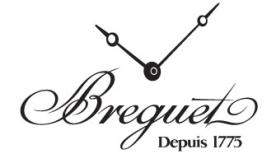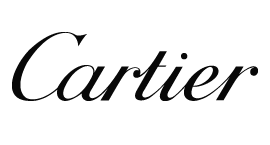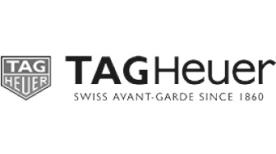Morgan Stanley Research worked in collaboration with Oliver Müller, founder of Swiss watch industry consultancy firm LuxeConsult, on its study of the Swiss watch market that was published in 2019. Their report highlights the outperformance of "mega-brands" in the luxury sector and ranks the top 10 watch brands by their estimated sales in 2018.
In 2018 the Swiss watch industry exported 23.7 million watches, which is a drop in the ocean compared to global watch production that is measured in the billions. But the tables are turned when value alone is considered, since the predominantly luxury brands in the Swiss watch industry account for 70% of the global watch market, with exports worth 21.2 billion in 2018, according to the Swiss Watch Industry Federation's statistics.
WorldTempus lists the top ten Swiss watch brands based on their estimated sales in 2018 according to Morgan Stanley Research.
1. Rolex. The company with the crown remains the undisputed champion in the global watch market. Totally independent and not listed on the stock exchange, the prestigious brand is almost an exception in this top ten, along with Patek Philippe. Although the company is owned by a charitable foundation and very discreet about its figures, Morgan Stanley Research estimates that its sales in 2018 were just over 5 billion Swiss francs on estimated sales of 950,000 watches.
2. Omega. Double-digit growth at the brand in 2018 pushed revenue up to an estimated 2.34 billion Swiss francs, meaning that Omega significantly outperformed the watch industry as a whole, as well as its peers within the Swatch Group. Morgan Stanley Research estimates that Omega and Longines alone accounted for around 70% of the parent company's operating profit in 2018.
3. Cartier. Despite a shift in focus in its watch segment over the past few years, the French feather in the Richemont group’s cap remains a heavyweight in the list with an estimated 410,000 watches sold in 2018 for a turnover of 1.66 billion Swiss francs.
4. Longines. Fourth place goes to the oldest trademarked brand still in operation. The Swatch Group’s outpost in Saint-Imier generated around 1.65 billion Swiss francs in turnover in 2018 from sales of 2.1 million watches.
5. Patek Philippe. In the hands of the Stern family since 1932, the brand likes to remind us that it is one of the few manfactures that is still family owned. The purveyor of some of the world's best timepieces produced an estimated 56,000 watches in 2018 - a figure that has barely evolved over the past few years as the company masterfully manages supply and demand for its watches. The small production volume with a high average price brought in 1.35 billion Swiss francs in revenue in 2018, according to Morgan Stanley Research.

6. Tissot. More accessible to the general public than the brands further up in the table, Tissot offers much more affordable timepieces in much greater volumes (second only to Swatch in terms of production). It’s a strategy that has paid off for this Swatch Group brand, which closed its 2018 financial year with a turnover of 1.05 billion francs on estimated sales of close to three million watches. But Tissot is suffering from the popularity of smartwatches, which it competes with directly in its price segment. How much longer can the company hold on to its top 10 position?
7. Audemars Piguet. The independent watch brand from Le Brassus confirms the strength of the non-listed companies in 2018 with record sales (1.03 billion Swiss francs) and profits for the year. Like Patek Philippe and Rolex, the independent brand controls its production tightly and is taking increasing control over its sales and distribution channels.
8. TAG Heuer. The reference brand for luxury sports watches is the only representative from the LVMH watchmaking division in this top ten. Under the stewardship of industry veteran Jean-Claude Biver until last year, its sales have grown steadily to just under a billion Swiss francs (985 million) in 2018.
9. IWC. Known for its accessible luxury, pilot's watches and grand complications, this brand from the Richemont stable sold 889 million Swiss francs worth of timepieces in 2018, according to Morgan Stanley Research.
10. Breguet. Jaeger-LeCoultre. The brand from Le Sentier edged ahead of its Richemont peers Vacheron Constantin and Officine Panerai to make it into the top 10 of 2018 with revenue of 647 million Swiss francs on sales of 110,000 watches. But the brand faces competition for its place from Hublot, which is just behind it in terms of revenue but with a production volume that is half that of Jaeger-LeCoultre.
Click here to see the top 10 luxury watch brands
Switzerland's two big watchmaking groups both have three brands in the top ten, although the Swatch Group dominates in terms of both volume and value. But it is the rise of the "mega-brands" that is the most noticeable trend, as the independent brands with greater control over their entire value chain take advantage of this. After the threat of supply bottlenecks for mechanical movements from the Swatch Group had been met with increased capacity in the industry, competition focused more on the brands with an iconic design. With the move towards DTC (direct to consumer) models already started by the likes of Audemars Piguet and Richard Mille set to intensify over the coming years, we can expect disruption in the top 10 watch brands.









